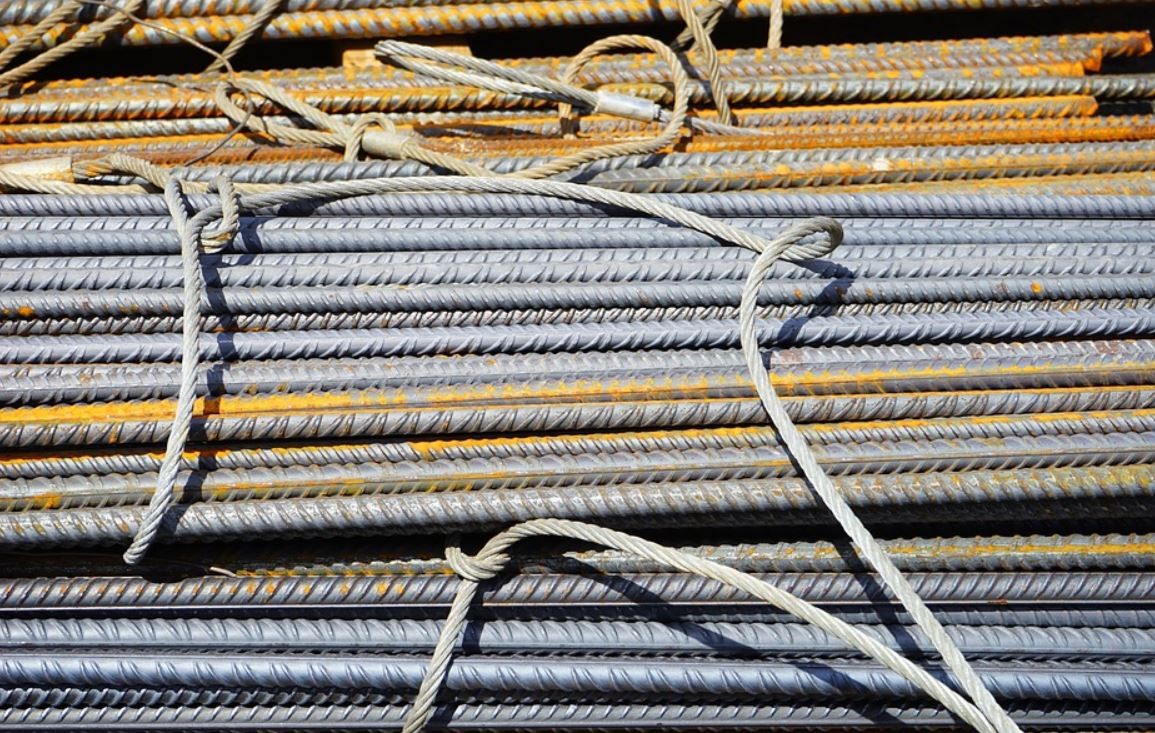Construction Material Price Falls Significantly

By Laxman Kafle
Kathmandu, Dec. 5:
Price of the construction materials, especially, iron, cement, sand and pebbles, has declined significantly over a year.
The price of the construction materials went down upto by 35 per cent over a year due to decrease in their demand following the completion of about 80 per cent reconstruction works and the slow pace of development works, said Rabi Singh, president of the Federation of Contractors' Association Nepal (FCAN).
According to him, price of iron decreased by 20 per cent to Rs. 60 per kilogram in a year. A year ago, cost of a kilogram of iron was above Rs. 80.
The price of iron reached Rs. 114 per kilogram after the earthquake when its demand went up, he said. A decade ago, its price had reached Rs. 140 per kg, he said.
Likewise, price of cement also declined by 35 per cent in the local market. Per sack of cement (50 kg) is now available at the range of Rs. 550 to Rs. 650 in the market. A year ago, the customers had to pay Rs. 850 to Rs. 950 for the same amount of cement.
The price of cement depends on its quality. OPC cement is comparatively more expensive than the PPC cement, he said.
Singh said that sand suppliers were now supplying a truck of sand at Rs. 24,000. They used to ask Rs. 35,000 for the same a year ago. The price of pebbles has also declined to Rs. 22,000 from Rs. 35,000 per tipper.
Price of bricks has also decreased to Rs. 12 per piece from Rs. 20 a year ago.
A year ago, costs of bricks varied based on their demand and season but now, the traders are supplying bricks at similar rate. However, the price of bricks slightly had varied based on their quality.
"The reconstruction works after the April 2015 earthquake has almost reached the final phase, and it has led to the decrease both in the demand and price of the construction materials," he said.
He said that reduction in the price of construction materials was good for the country, but it should be sustainable because the price of construction materials had fallen due to unhealthy competition among the producers.
“They are supplying materials at the production cost after the significant fall in their demand. If the demand increases, they will surely increase the prices of their products,” he said.
Kiran Sakha, chairman of Sakha Group, said that the excessive supply of iron was a major reason behind the fall of its price.
“The iron and steel suppliers are compelled to sell their products at the price lower than the purchased price only to give continuity to their business. The slow pace of development works is a reason for the fall in the demand of construction materials,” he said.
At present, the suppliers are selling iron at the rate of Rs. 60 to Rs. 65 per kilogram based on the brand and quality, he said, adding that its price would further decrease if the construction of the development projects did not get momentum.
Dhruba Thapa, president of Cement Manufacturers’ Association of Nepal, said the price of cement had declined over the years due to increase in its production against demand.
"The growing competition among the cement factories has also led to the decrease in its prices as the manufacturing companies are supplying cement in a lower rate by increasing production,” he said.
The demand of cement is now low in the country compared to two years ago, he said.
The production capacity of cement industries is 15 million tonnes a year which is almost one and a half times higher than the demand, he said.
According to him, the improvement in supply of electricity and reduction in the price of coal in the international market also led to fall in cement prices in the local market.
The price of coal has decreased by almost 40 per cent in the international market.
Recent News

Do not make expressions casting dout on election: EC
14 Apr, 2022
CM Bhatta says may New Year 2079 BS inspire positive thinking
14 Apr, 2022
Three new cases, 44 recoveries in 24 hours
14 Apr, 2022
689 climbers of 84 teams so far acquire permits for climbing various peaks this spring season
14 Apr, 2022
How the rising cost of living crisis is impacting Nepal
14 Apr, 2022
US military confirms an interstellar meteor collided with Earth
14 Apr, 2022
Valneva Covid vaccine approved for use in UK
14 Apr, 2022
Chair Prachanda highlights need of unity among Maoist, Communist forces
14 Apr, 2022
Ranbir Kapoor and Alia Bhatt: Bollywood toasts star couple on wedding
14 Apr, 2022
President Bhandari confers decorations (Photo Feature)
14 Apr, 2022











